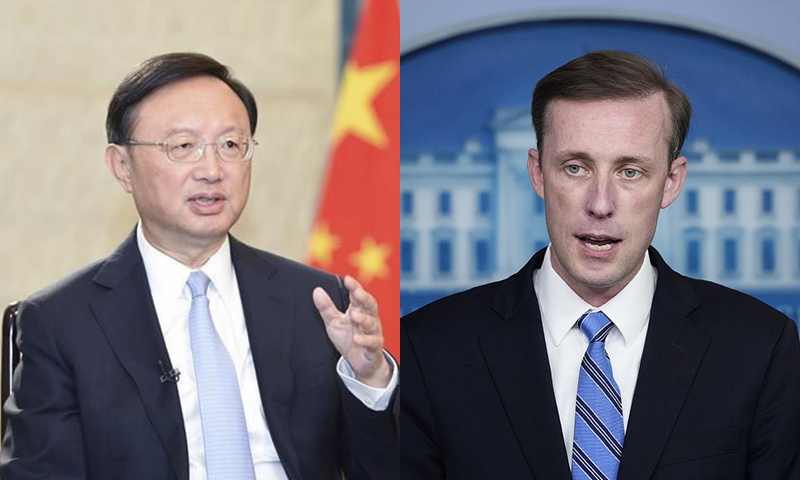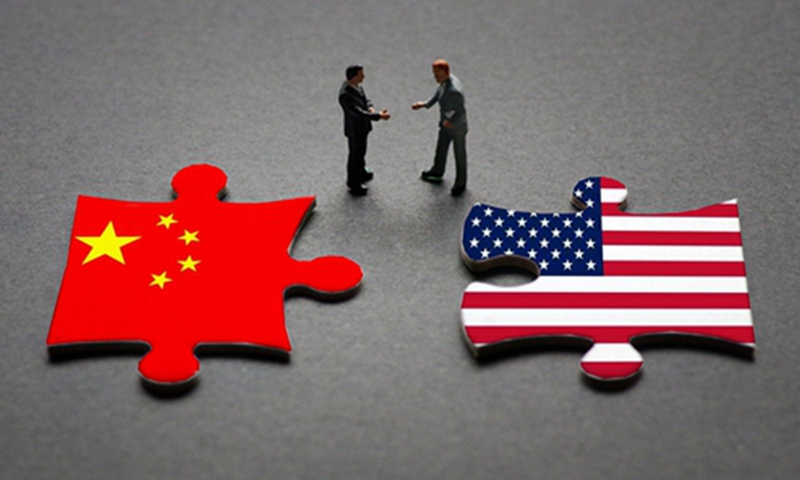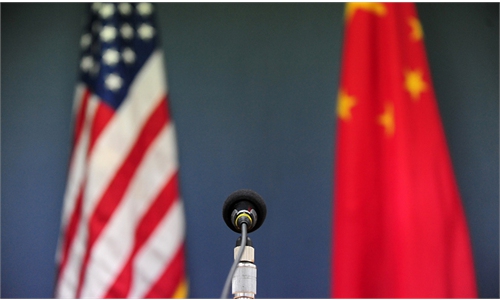
Half a month after a telephone conversation between Chinese President Xi Jinping and US President Joe Biden, Huawei's CFO Meng Wanzhou returned home safely, breaking the ice of the decade-low China-US relations as the world has widely anticipated, or even highly expected. Following the symbolic turning point, China and US militaries resumed high-level talks for the first time since Biden took office in January and US Trade Representative Katherine Tai released a "positive" signal with a "frank conversation" with China on different areas.
On Wednesday, China and the US announced a high-level meeting between top Chinese diplomat Yang Jiechi and US national security adviser Jake Sullivan in Zurich, Switzerland, upholding a pledge made by the two countries to boost communication.
Experts on foreign affairs reached by the Global Times on Wednesday believe that nearly 10 months after Biden took office, it appears that the US is planning to put an end to its reckless and unrealistic strategy of dealing with China "from the position of strength" and China-US relations are about to enter into a pragmatic, strategic stalemate stage with concrete cooperation.
They noted that the running-in period would not be very smooth as the Biden administration had shown an uncomfortable and unwise adjustment in the past eight months. But as what Chinese President Xi had stressed in the phone call - "getting the [China-US] relations right is not optional, but something we must do and must do well," the world is expecting to see how the meeting between Yang and Sullivan would get the relationship right.
It will be the first face-to-face meeting between Yang and Sullivan since their exchanges in Alaska in March with tough and direct words. But observers believe that moment will not be repeated this time.

China US
Rebuilding communication
Chinese Foreign Ministry spokesperson Hua Chunying announced on Wednesday that Yang Jiechi, a member of the Political Bureau of the Communist Party of China Central Committee and director of the Office of the Central Commission for Foreign Affairs, will meet with Sullivan in Zurich, according to the consensus reached by Chinese and US heads of state on September 10 in their phone conversation and as agreed upon by China and the US. They will exchange views on China-US relations and relevant issues.
The White House said in a statement on Tuesday that the meeting follows up on Biden's September 9 call with Chinese President Xi "as we continue to seek to responsibly manage the competition between the United States and the People's Republic of China."
"Just as President Xi had stressed in the phone call - getting the [China-US] relationship right is not optional, but something we must do and must do well - the meeting between Yang and Sullivan will focus on engaging in cooperation, managing differences and conducting in-depth communication on major issues related to bilateral relations and global affairs," Diao Daming, an expert on US studies and associate professor at the Renmin University of China in Beijing, told the Global Times on Wednesday.
It manifested again that China has been holding a positive and responsible attitude toward China-US relations and always attaches great importance to stabilizing the bilateral ties through dialogue, Diao said.
In the telephone conversation, Biden noted that the US-China relations are the most consequential relationship in the world, and the future of the world will depend on how the US and China get along with each other. The two countries have no interest in letting competition veer into conflict.
Diao predicted that the possibility for the two senior officials to talk about a summit meeting between Xi and Biden cannot be ruled out, given that the recent bilateral interactions since Biden took office in January have shown little concrete progress.
In July, China delivered two lists of major concerns to the US during Vice Foreign Minister Xie Feng's meeting with visiting Deputy Secretary of State Wendy Sherman, including urging the US to lift sanctions and visa restrictions targeted at Chinese officials and entities, and withdraw Meng Wanzhou's extradition.
In June, Yang Jiechi reiterated China's stern position on issues related to Xinjiang and Hong Kong and urged the US not to interfere in China's domestic affairs under any excuse in a telephone conversation with US Secretary of State Antony Blinken.
"Coming at a very sensitive juncture, the two senior official's meeting shows the two countries are willing to engage in a frank discussion to ensure general stability based on effective management on major differences. It will also be beneficial to the Asia-Pacific region," Li Haidong, a professor at the Institute of International Relations of the China Foreign Affairs University, told the Global Times on Wednesday.
"The recent US strategic offensive against China shows the Biden administration is planning to partially cease fire. Aside from issues concerning China's sovereignty and territorial integrity, there are clear signs in the 'easing' of China-US tensions," Li said, noting that China-US relations will be transformed from "confrontational competition" to a "conversational competition" stage, and "fighting while talking" would be the normal of bilateral ties.
From half a year of fierce clashes between China and the US, Biden has played all the "Trump cards," but only to find it is in urgent need of China's support in dealing with regional security issues, such as the Afghan issue, global climate change crisis, and economic recovery, analysts noted.
US Special Presidential Envoy for Climate John Kerry visited China twice this year, hoping to promote China-US cooperation on the climate issue. US Trade Representative Katherine Tai said in a speech on Monday that the US will hold "frank conversations" with China on trade in the near future and the upcoming talks are not intended to "inflame trade tensions with China."
However, Li pointed out that it does not mean Biden has changed its China policy and its arrogant logic of "competition, cooperation, and confrontation."
If the US continues to show little willingness toward cooperation while imposing a crackdown on China, it will find no grateful Chinese, Li said.
Since taking office, the Biden administration has gone back to its roots and interfered in China's internal affairs on issues related to Hong Kong, Xinjiang and Xizang (Tibet). From strong interference in the Taiwan-related affairs to stirring up disputes in the South China Sea, it has launched an all-out assault against China's sovereignty, security and development interests by wooing its allies and creating the AUKUS military alliance mechanism.
The international community has been lashing out against US moves to pose risks to regional security and many of its allies have been skeptical toward US betrayal.
On Monday, the Chinese Foreign Ministry slammed the US for voicing "concern" over the Chinese mainland's military activities near the island of Taiwan, saying it sent a very wrong and irresponsible signal, and China will take all measures necessary to crush any "Taiwan independence" attempts.
"The US should know that the way to end 'fighting while talking' should be cooperation, instead of fiercer confrontation," Li said. "China will continue to elaborate its principle and stance on developing bilateral ties and firmly safeguarding its sovereignty and development interests."
Echoing Li, Diao also noted that China's position on economic and trade policies is consistent, and will not change because of any US officials' remarks.
"We hope that the Biden administration will put things right and get back on the right track and correct the wrong and extreme practices left over by the Trump administration, especially those that have harmed the two countries and the world in the economic and trade field," Diao said.
In explaining why the meeting was held at Zurich, Wu Xinbo, director of the Center for American Studies at Fudan University in Shanghai, said it might be based on a principle of diplomatic reciprocity, as the distances between China, US and Switzerland is roughly 8,000 kilometers with a time differences of six hours between each country.
Moreover, Switzerland has always been a neutral state with a foreign policy which claims that it is not to be involved in armed or political conflicts between other countries, Wu said.


